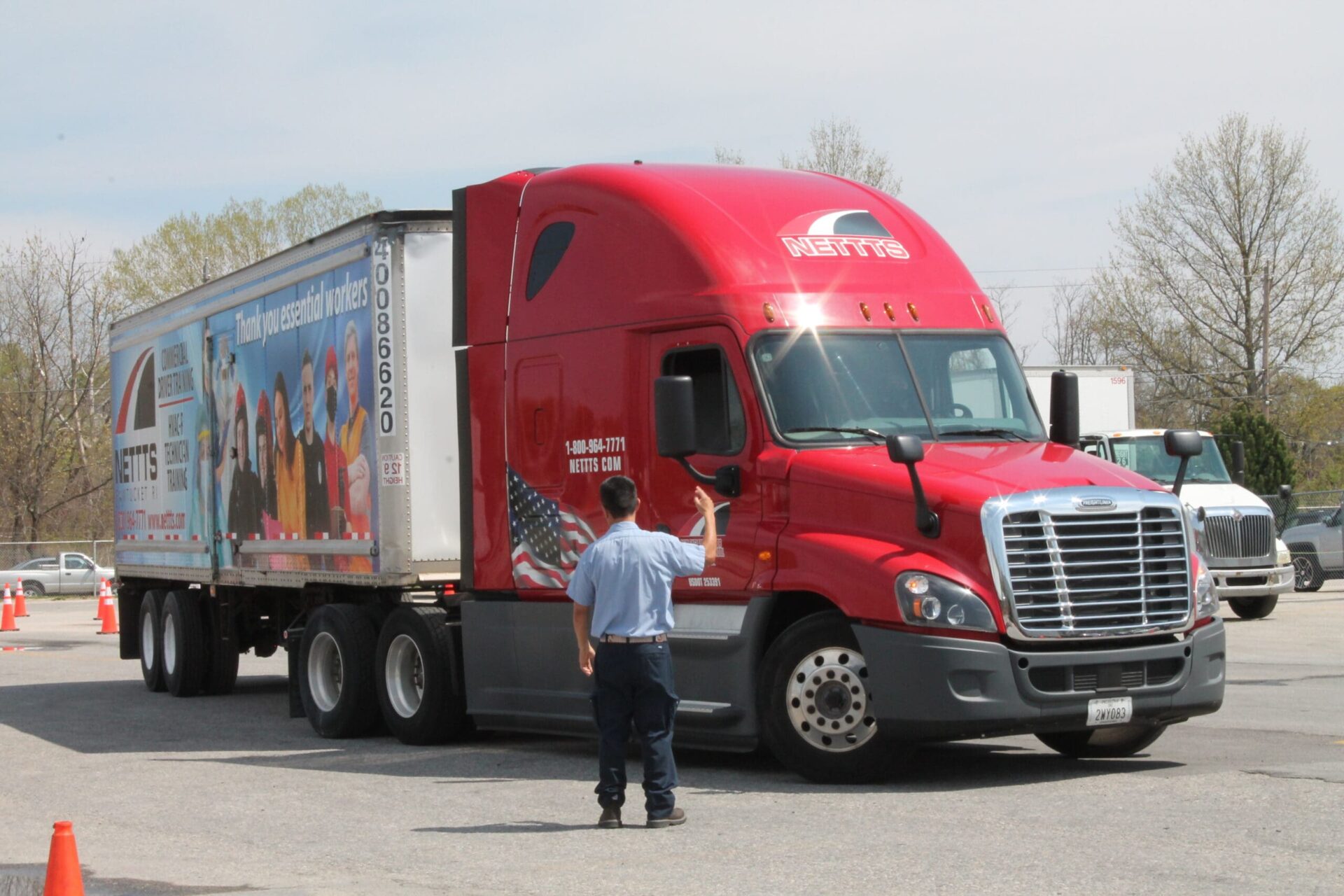
While most people think of regular two- or four-door cars when they think of a driver’s license, there are many different types of vehicles on the road that require a specialized license to drive. The types of driver’s licenses are organized by classes that span from A to E and have special variations, like MJ and DJ. The driver’s license requirements and types can also vary slightly by state in the United States.
As a vocational training school, New England Tractor Trailer Training School (NETTTS) offers CDL training at campus locations throughout New England. Here, we discuss the various types of driver’s licenses.
What are the Types of Driver’s Licenses?
Driver’s licenses can vary from state to state. But there are two overall types of licenses that people should be aware of:
- Commercial Driver’s License (CDL): Sometimes, this is called a professional driver’s license because people who have a CDL often use it to drive for a living. According to the S. Department of Transportation (DOT), holding a CDL enables drivers to:
- Operate any combination of vehicles with a gross vehicle weight rating (GVWR) of more than 26,000 lbs.
- Operate any single vehicle with a gross weight of 26,000 lbs. or more for commercial use.
- Non-Commercial Driver’s License (NCDL): This is the type of license that the everyday driver has.
For a CDL, an applicant must be 18 years old. They must be 21 years old if they intend to haul hazardous material.
What are the Different Classes of Driver’s Licenses?
Besides a CDL and NCDL, driver’s licenses can be broken down further into specific classes, each designed to operate a different class of vehicle. Connecticut Department of Motor Vehicles (DMV) defines these licenses as follows:
CDL A
A CDL A is needed for drivers who intend to drive combination-type vehicles, such as tractor-trailers or truck-trailers. These vehicles must meet the following requirements:
- Have a gross combination weight rating (GCWR) of 26,001 or more lbs.
- Have a towed vehicle with a GCWR or gross vehicle weight rating (GVWR) in excess of 10,000 lbs.
CDL B License/Endorsement
A CDL B is required for driving single-type vehicles, which include heavy single-unit trucks or buses. These vehicles have:
- A GVWR of 26,001 or more.
- A towed vehicle with a GVWR of 10,000 lbs. or less
- If the towed vehicle is more than 10,000 lbs., the GCWR is 26,000 lbs. or less
CDL C License/Endorsement
A CDL C is needed for those who wish to drive a single-type vehicle like a single-unit truck or bus. These vehicles have a GVWR of 26,000 lbs. or less and may tow vehicles with a GVWR of 10,000 lbs. or less. They may tow vehicles weighing more than 10,000 lbs. if the GCWR does not exceed 26,000 lbs. The vehicles must also meet one of the following requirements:
- Transports 16 or more passengers, including the driver
- Transports more than 10 passengers, including the driver, and transports students under 21 to and from school (requires medical certificate)
- Carries hazardous materials placarded under 49 CFR 172.500 or any other federal regulation (requires medical certificate)
In addition to CDL licenses, there are also non-commercial licenses that include:
- Class D License/Endorsement: Single vehicles or a combination of vehicles not meeting the definition of Class A, Class B, Class C, or Class M. These include passenger vehicles like cars, SUVs, and family vans.
- Allows operation of regular passenger vehicles weighing less than 26,001 pounds, such as cars, pickup trucks, and small SUVs
- May permit driving small trucks or vans for personal use or light business purposes, depending on state regulations
- Sometimes includes authorization to operate vehicles that can tow trailers up to certain weight limits (typically under 10,000 pounds combined)
- Does not require special endorsements or commercial driving tests like CDLs do
- Class E License/Endorsement: Used in some states instead of Class D for standard driver’s licenses. The requirements and privileges are typically the same as Class D.
- Class M License/Endorsement: Required for operating motorcycles, motor scooters, and in some states, mopeds. It can exist either as a standalone license or as an endorsement added to another license class (like a Class D). To obtain it, drivers typically need to:
- Pass a specialized written test covering motorcycle operation and safety
- Complete a practical riding test or an approved motorcycle safety course
- Demonstrate proficiency in basic motorcycle control and traffic navigation
What are the 6 Types of License Endorsements?
Certain types of vehicles require an endorsement on a license. Those license endorsements can include:
- H (HazMat): Required for drivers transporting hazardous materials such as gasoline, oil, and other dangerous chemicals. This endorsement requires both written and skills tests, plus a Transportation Security Administration background check.
- N (Tanker): Enables Class A and B CDL holders to operate vehicles with permanent or temporary cargo tanks exceeding 119 gallons and 1,000 gallons aggregate capacity. This applies to both liquid and gas cargo tanks.
- P (Passenger Transport): Required for drivers operating vehicles designed to transport 16 or more passengers, including the driver. This endorsement involves both written and skills testing focused on passenger safety.
- S (School Bus): Permits CDL holders to operate school buses. Drivers must pass specialized written and skills tests, undergo background checks, and maintain a clean driving record. This endorsement requires a passenger (P) endorsement as a prerequisite.
- T (Doubles/Triples): This license allows drivers to operate combination vehicles with multiple trailers. Drivers must demonstrate knowledge of coupling and uncoupling procedures and the specialized handling characteristics of multiple-trailer combinations.
- X (Combined HazMat and Tanker): A combination endorsement that merges the requirements of both H and N endorsements. This permits drivers to transport hazardous materials in tank vehicles, requiring all associated background checks and testing requirements.
Additional requirements may apply for endorsements. An endorsement may require a written test or additional training before a person can earn it.
Learn More About CDL Classes at a NETTTS Campus Near You
If you are looking for career training or looking to train for a CDL, New England Tractor Trailer Training School (NETTTS) could be the change you’re looking for. Our programs include:
- Experienced instructors with professional driving knowledge and at least three years of CDL road experience
- Practice on truck driving simulator
- Training on trucks with 10-speed manual transmissions
- Monthly payments that can extend beyond graduation
- Financial aid available for those who qualify
- Career services support
NETTTS is accredited by the Accrediting Commission of Career Schools and Colleges (ACCSC).
If you live in New England and are interested in learning more about New England Tractor Trailer Training School (NETTTS), feel free to give us a call. We have campus locations in:
- Bridgeport, Connecticut
- Somers, Connecticut
- North Andover/Haverhill, Massachusetts
- Pawtucket, Rhode Island
Contact us today or request more information. Call us at 800-333-2888 if you have questions.



